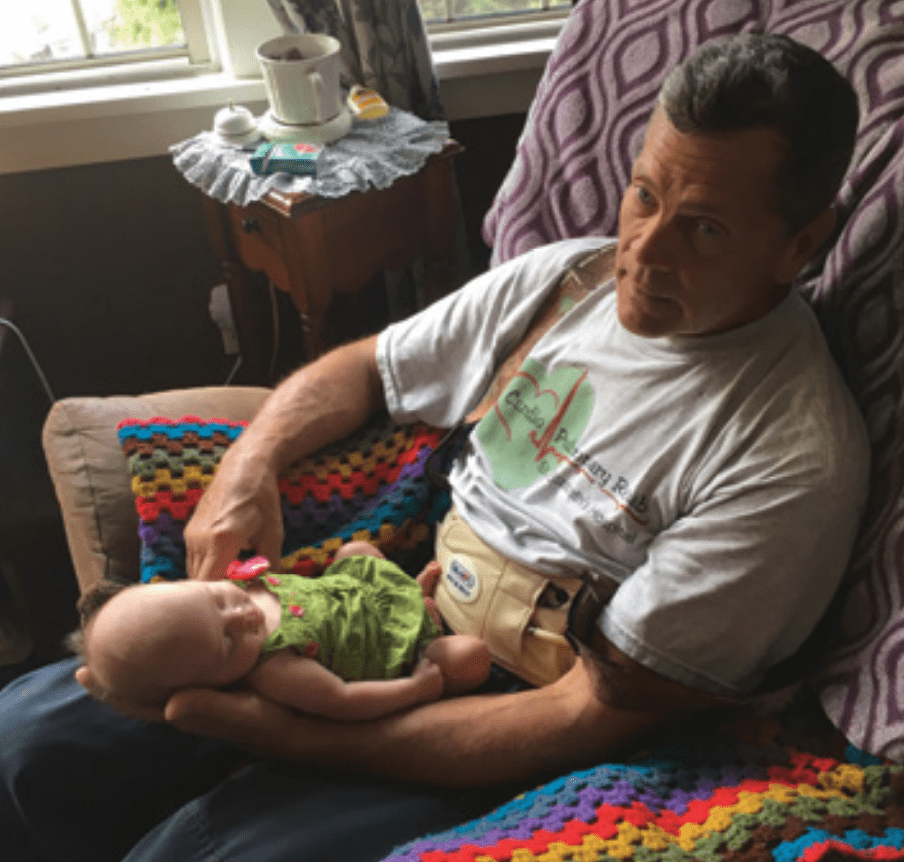This Drummer Needed A Little Help Keeping the Beat

It was a Friday night in the fall of 2019 when drummer David Fellner, then 61, decided he wanted to join some friends at an open mic night. And it was a decision that may have saved his life.
After taking a seat at the drum set, Fellner remembers pulling his drumsticks out, but he doesn’t remember playing. “I must have been subconsciously playing,” he said. “They said the music had stopped in a very strange place in the song, and they looked back and thought maybe I’d dropped my sticks, but I had fallen into the drums. I just fell forward.”
Right place and right time
“Thankful for me that there was a paramedic, I believe, and a nurse that happened to be in attendance,” Fellner said. “Normally there’s nobody there like that. They got me out from behind there, got me on the floor, and kept me going with CPR until the wagon got there.” Lauren Bovenzi and John Swanson were both Memorial employees who provided Fellner with hands-only CPR.
When the ambulance arrived, Fellner was unresponsive, so the emergency medical team used the defibrillator on him, opened his airway, and got his heart going again. When he arrived at Memorial Hospital Belleville’s emergency department, his heart stopped twice more due to ventricular tachycardia, which resulted in being defibrillated two more times and intubated. An electrocardiogram showed that he had suffered a heart attack. When he woke up in the hospital the next morning, he joked with the nurses that he got paddled a lot more when he was a little boy. “It was an electrical shutdown,” Fellner said. “My heart just decided to stop beating. There was no warning whatsoever. I felt good when I went in; I felt fine. I guess it was just the excitement of the moment.”
Prior heart issues
When he was 50, Fellner had quintuple bypass open heart surgery. This was followed a year later by having two stents put in, and eight years after that he had another stent put in. “However, they found out that it was actually gastro,” he said. “Acid reflux mimics a heart attack, same exact symptoms. But they did find an artery they could get to with a little difficulty, but they got it done and got another stent in me.”
His treatment in 2019 included continuing the medications he was already on and having a pacemaker/ defibrillator inserted.
Healthy changes
 So how is Fellner doing now? “I’m doing great,” he reports. “Well, I’ve changed my diet. Major diet, I should have done 20 years ago. If I knew back before I had that surgery what I know now, I would have never had surgery. I know how to clear my arteries now naturally. So I’ve gotten into the holistic side of things, and it seems to be doing real well, because I feel great. I can pretty much do anything I want without too much struggle.”
So how is Fellner doing now? “I’m doing great,” he reports. “Well, I’ve changed my diet. Major diet, I should have done 20 years ago. If I knew back before I had that surgery what I know now, I would have never had surgery. I know how to clear my arteries now naturally. So I’ve gotten into the holistic side of things, and it seems to be doing real well, because I feel great. I can pretty much do anything I want without too much struggle.”
And Fellner will never forget those bystanders, EMTs, and Memorial team members who helped save his life. “A lot of praise to those that were there and took care of me,” he said. “That’s priceless.”
What is EHAC?
Early Heart Attack Care (or EHAC) education teaches you to recognize the early signs and symptoms of a heart attack. Why? We want you to become an active bystander, so you can save a life—even if it’s yours.

Memorial Hospital Belleville is an Accredited Chest Pain Center and has adopted the life-saving processes to deliver the highest level of cardiovascular care to your community.


